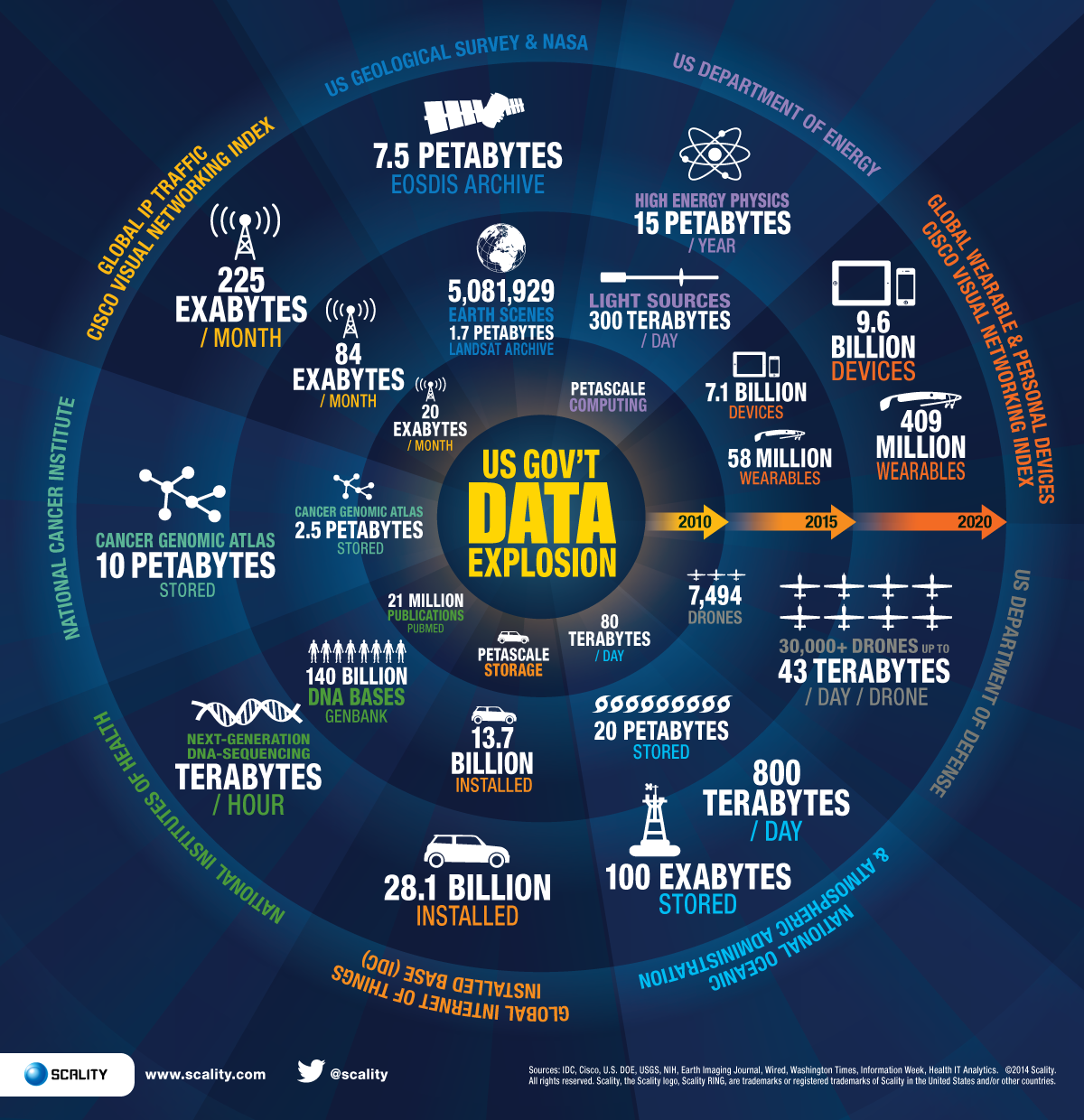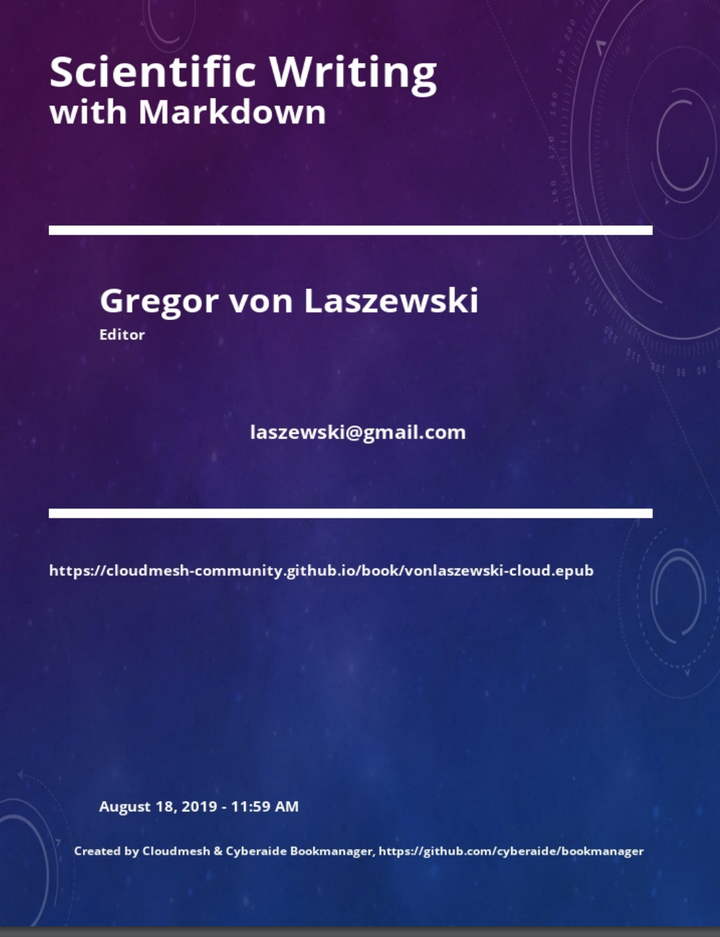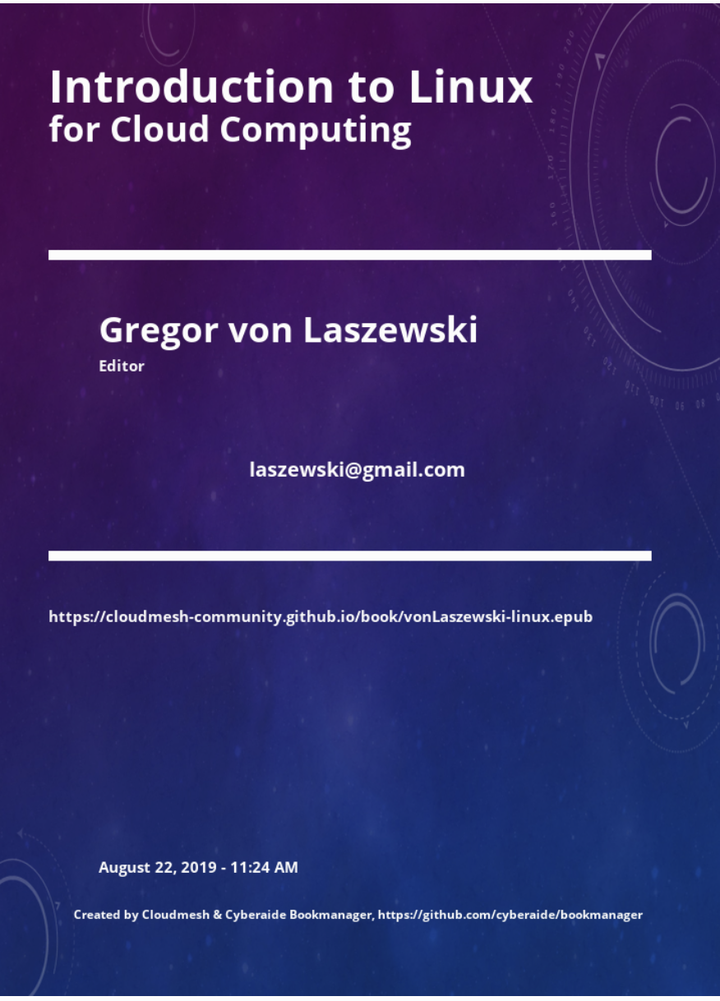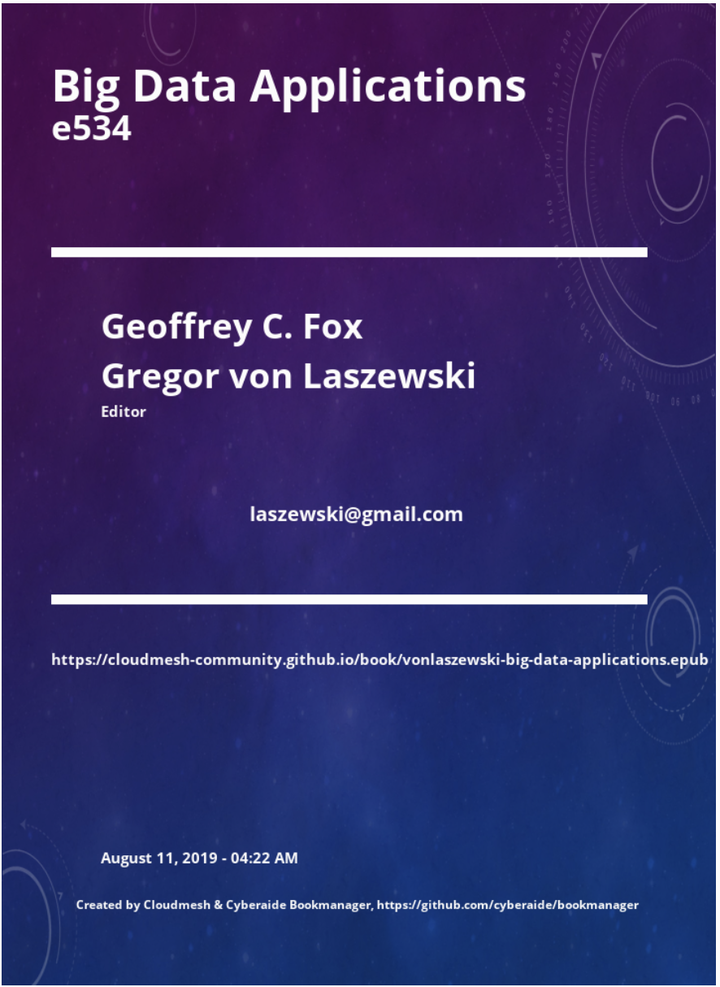Project Guidelines
We present here the AI First Engineering project guidelines
8 minute read

This course introduces the students to AI-First Engineering Cybertraining we provide the following sections
As part of this class, we will be using a variety of sources. To simplify the presentation we provide them in a variety of smaller packaged material including books, lecture notes, slides, presentations and code.
Note: We will regularly update the course material, so please always download the newest version. Some browsers try to be fancy and cache previous page visits. So please make sure to refresh the page.
We will use the following material:

|
Course Lectures. These meeting notes are updated weekly (Web) |
This course is built around the revolution driven by AI and in particular deep learning that is transforming all activities: industry, research, and lifestyle. It will a similar structure to The Big Data Class and the details of the course will be adapted to the interests of participating students. It can include significant deep learning programming.
All activities – Industry, Research, and Lifestyle – are being transformed by Artificial Intelligence AI and Big Data. AI is currently dominated by deep learning implemented on a global pervasive computing environment - the global AI supercomputer. This course studies the technologies and applications of this transformation.
We review Core Technologies driving these transformations: Digital transformation moving to AI Transformation, Big Data, Cloud Computing, software and data engineering, Edge Computing and Internet of Things, The Network and Telecommunications, Apache Big Data Stack, Logistics and company infrastructure, Augmented and Virtual reality, Deep Learning.
There are new “Industries” over the last 25 years: The Internet, Remote collaboration and Social Media, Search, Cybersecurity, Smart homes and cities, Robotics. However, our focus is Traditional “Industries” Transformed: Computing, Transportation: ride-hailing, drones, electric self-driving autos/trucks, road management, travel, construction Industry, Space, Retail stores and e-commerce, Manufacturing: smart machines, digital twins, Agriculture and Food, Hospitality and Living spaces: buying homes, hotels, “room hailing”, Banking and Financial Technology: Insurance, mortgage, payments, stock market, bitcoin, Health: from DL for pathology to personalized genomics to remote surgery, Surveillance and Monitoring: – Civilian Disaster response; Miltary Command and Control, Energy: Solar wind oil, Science; more data better analyzed; DL as the new applied mathematics, Sports: including Sabermetrics, Entertainment, Gaming including eSports, News, advertising, information creation and dissemination, education, fake news and Politics, Jobs.
We select material from above to match student interests.
Students can take the course in either software-based or report-based mode. The lectures with be offered in video form with a weekly discussion class. Python and Tensorflow will be main software used.

|
Introduction to AI-Driven Digital Transformation (Web) |

|
A Gentle Introduction to Google Colab (Web) |

|
A Gentle Introduction to Python on Google Colab (Web) |

|
MNIST Classification on Google Colab (Web) |

|
MNIST-MLP Classification on Google Colab (Web) |

|
MNIST-RNN Classification on Google Colab (Web) |

|
MNIST-LSTM Classification on Google Colab (Web) |

|
MNIST-Autoencoder Classification on Google Colab (Web) |

|
MNIST with MLP+LSTM Classification on Google Colab (Web) |

|
Distributed Training with MNIST Classification on Google Colab (Web) |

|
PyTorch with MNIST Classification on Google Colab (Web) |

|
Piazza. The link for all those that participate in the IU class to its class Piazza. |

|
Scientific Writing with Markdown (ePub) (PDF) |

|
Git Pull Request. Here you will learn how to do a simple git pull request either via the GitHub GUI or the git command line tools |
This course does not require you to do much Linux. However, if you do need it, we recommend the following as starting point listed
The most elementary Linux features can be learned in 12 hours. This includes bash, editor, directory structure, managing files. Under Windows, we recommend using gitbash, a terminal with all the commands built-in that you would need for elementary work.

|
Introduction to Linux (ePub) (PDF) |
Older versions of the material are available at

|
Lecture Notes 2020 (ePub) (PDF) |

|
Big Data Applications (Nov. 2019) (ePub) (PDF) |

|
Big Data Applications (2018) (ePub) (PDF) |
You can contribute to the material with useful links and sections that you find. Just make sure that you do not plagiarize when making contributions. Please review our guide on plagiarism.
This course does not require a sophisticated computer. Most of the things can be done remotely. Even a Raspberry Pi with 4 or 8GB could be used as a terminal to log into remote computers. This will cost you between $50 - $100 dependent on which version and equipment. However, we will not teach you how to use or set up a Pi or another computer in this class. This is for you to do and find out.
In case you need to buy a new computer for school, make sure the computer is upgradable to 16GB of main memory. We do no longer recommend using HDD’s but use SSDs. Buy the fast ones, as not every SSD is the same. Samsung is offering some under the EVO Pro branding. Get as much memory as you can effort. Also, make sure you back up your work regularly. Either in online storage such as Google, or an external drive.
We present here the AI First Engineering project guidelines